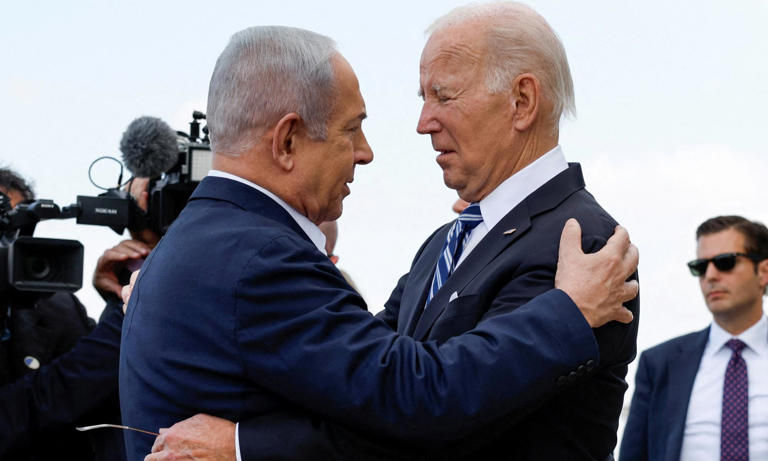Table of Contents
ToggleBiden’s Diplomacy in the Middle East
Explore the intricacies of Biden’s diplomatic efforts in the Middle East, particularly concerning Israel’s recent actions in response to Iran’s aggression.

© Reuters
Biden’s Diplomacy in the Middle East
In recent times, the Middle East has once again become a focal point of global attention, with tensions running high between various nations in the region. One key player in the complex geopolitical landscape of the Middle East is the United States, led by President Joe Biden, who has been navigating delicate diplomatic waters, particularly in relation to Israel and its response to Iran.
Navigating a Delicate Balance
The Biden administration has been faced with the challenge of managing relationships in the Middle East while striving to uphold its own strategic objectives and maintain stability in the region. Central to this challenge is the relationship between the United States and Israel, a longstanding ally in the Middle East.
A Public Directive
Amidst escalating tensions, President Biden made a public plea to Israeli Prime Minister Benjamin Netanyahu, urging restraint in the face of Iranian aggression. The message was clear: “Take the win,” Biden told Netanyahu, emphasizing the importance of avoiding uncontrolled escalation in response to Iran’s actions.
Questioning the Strategy
However, Israel’s subsequent decision to retaliate against Iran despite Biden’s public directive raised questions about the effectiveness of U.S. influence in the region. Some observers questioned the wisdom of making such a directive public, suggesting that it may have undermined Israel’s ability to assert its own deterrence.
© Reuters
The Limits of Influence
Biden’s call for restraint highlighted the delicate balance of power in the Middle East and the limits of U.S. influence, particularly when it comes to matters of national security and defense. Despite the close relationship between the United States and Israel, Israel’s actions demonstrated its willingness to act independently in pursuit of its own interests.
Redefining the Approach
Moving forward, the Biden administration may need to reconsider its approach to diplomacy in the Middle East, taking into account the complexities of the region and the diverging interests of key players. Finding a balance between public messaging and behind-the-scenes diplomacy will be crucial in managing future crises and advancing U.S. objectives in the region.
Conclusion
The recent events in the Middle East have highlighted the challenges of diplomacy in a region fraught with conflict and instability. Biden’s efforts to navigate these challenges have underscored the complexities of U.S. foreign policy and the limits of American influence in the face of competing interests and longstanding rivalries. As tensions continue to simmer in the Middle East, the path to peace and stability remains uncertain, requiring careful diplomacy and strategic engagement from all parties involved.
“Gaza War Escalation: 5 Shocking Signs of Impending Catastrophe”